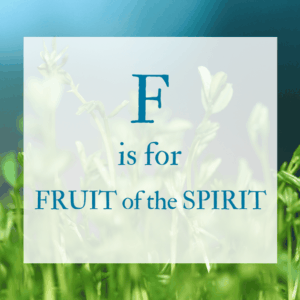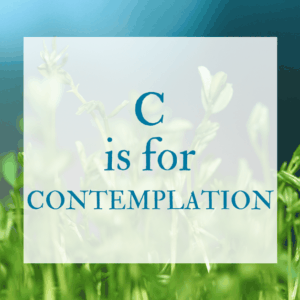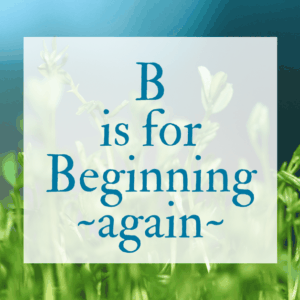 When I selected HUMILITY as my “H” in this A to Z Blog Challenge, I didn’t realize that it would coincided with Palm Sunday, the Sunday before Easter. At my church the service is full of readings, music, and images of a humble man, whose obedience leads him to His death. A behavior we’re asked to imitate in our daily lives.
When I selected HUMILITY as my “H” in this A to Z Blog Challenge, I didn’t realize that it would coincided with Palm Sunday, the Sunday before Easter. At my church the service is full of readings, music, and images of a humble man, whose obedience leads him to His death. A behavior we’re asked to imitate in our daily lives.
As I sit with my thoughts about humility, I regret that I’m attempting to write about it. I don’t even know where to begin to explain the role humility plays in Spiritual Growth, but it does play a role, an all-encompassing one.
Saint Benedict probably gave us the most useful information about humility. In the seventh chapter of his famous guide for community life, “The Rule,” he says that the ascent into humility is like the movement through 12 rungs on a ladder.
In his teaching, the rungs resonate with ideas like: mindfulness, submission, detachment, confession, contentment, disentanglement, and unconditional trust.
This last one sticks with me. I think humility is more about trust, than anything else.
Even though Christ asked that God find another solution for the issue at hand, he accepts humbly, the consequences, set in motion by the actions of selfish men. He did so with full trust that God would bring something good from it. And He did.
It follows then, that as I attempt to imitate Christ’s humility, I must trust that God will bring good from my surrender. My trust in God is demonstrated by my humility.
Humility by letting go of my rights.
Humility by letting go of my desires.
Humility by letting go of my plans.
Humility by letting go of my preferences.
Humility by letting go of my opinions.
Humility by letting go of my demands.
Humility by letting go of my expectations.
As I stop insisting things go my way, I am saying to God, “I believe that you will work all things for my good.” Easy to do? No.
But be encouraged, growing in humility is part of the ongoing process of Spiritual Growth. It is moving forward, step-by-step, in the trust that I will be okay, no matter what happens to me.


 That dreaded word: exercise. And in the Spiritual Realm … really?
That dreaded word: exercise. And in the Spiritual Realm … really? A foundational element in Spiritual Growth, DISCERNMENT is simply the act of listening for God’s voice. Simple, however anything BUT easy. How do you discern His voice amid the other noise? His leading? A struggle I hear about in my work as a Spiritual Director, and an issue I’ve struggled with myself.
A foundational element in Spiritual Growth, DISCERNMENT is simply the act of listening for God’s voice. Simple, however anything BUT easy. How do you discern His voice amid the other noise? His leading? A struggle I hear about in my work as a Spiritual Director, and an issue I’ve struggled with myself.


 I was fortunate to have a mother who took her faith seriously, and I must confess that I took full advantage of all her hard work. As long as she was alive, I could neglect my own Spiritual Growth. If I had a question about God, I could go to her. She had the answers I yearned for. But when she died, my lifeline to God died too.
I was fortunate to have a mother who took her faith seriously, and I must confess that I took full advantage of all her hard work. As long as she was alive, I could neglect my own Spiritual Growth. If I had a question about God, I could go to her. She had the answers I yearned for. But when she died, my lifeline to God died too.
 Just three weeks into our 40 days and I’m already feeling behind. Well, regardless, I’m thankful for the pause this season offers me.
Just three weeks into our 40 days and I’m already feeling behind. Well, regardless, I’m thankful for the pause this season offers me.